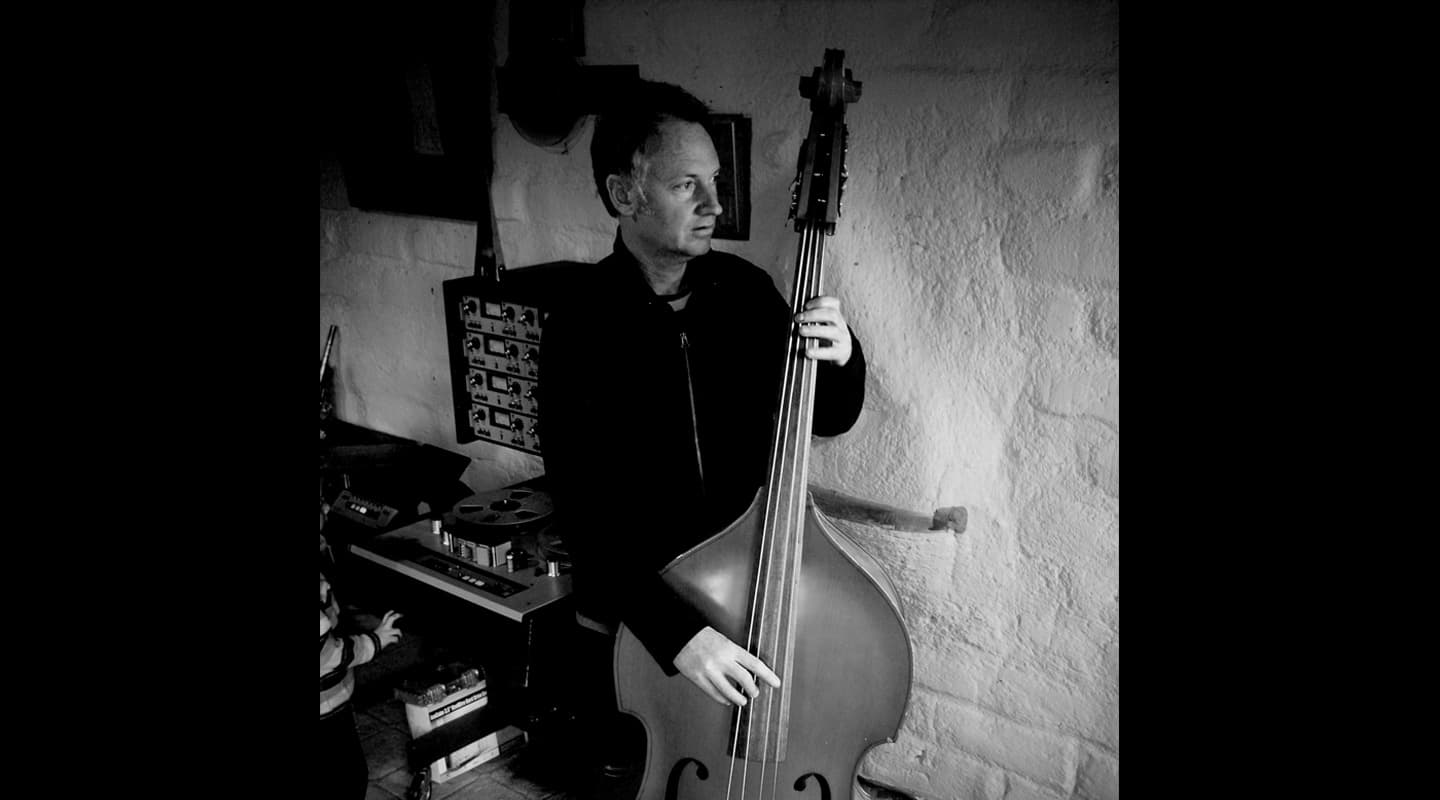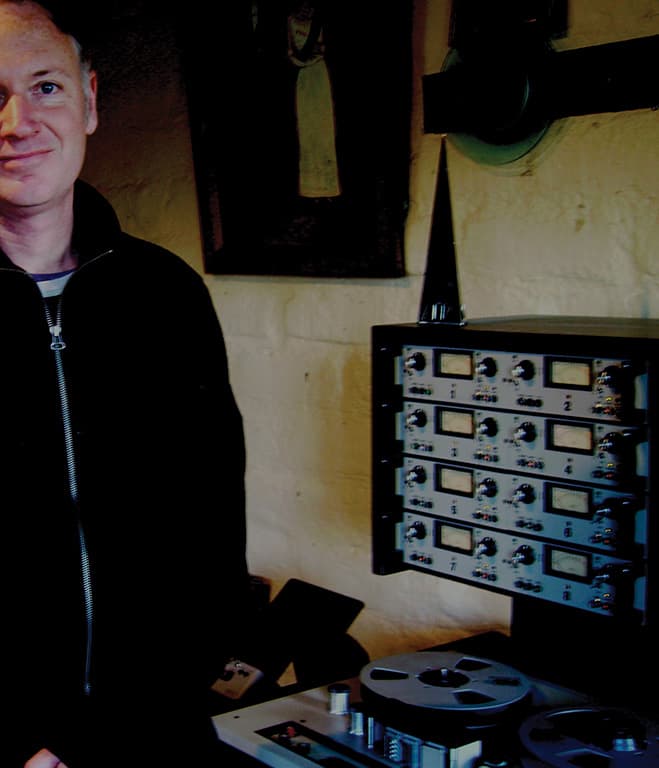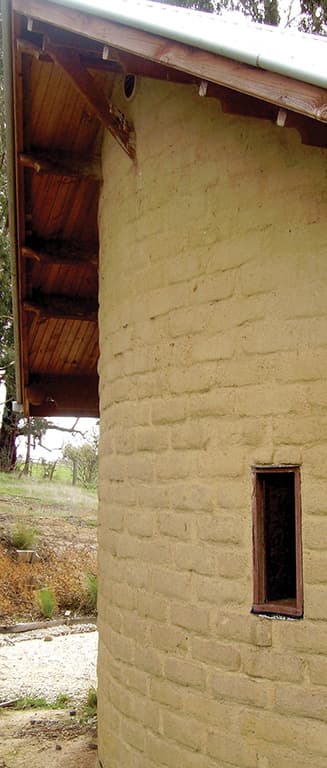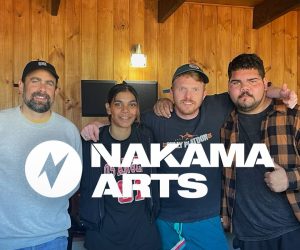
Brains Trust: An interview with Richard Pleasance
A Richard Pleasance production sticks out like a sore thumb – albeit without the pain. Mark O’Connor dusts for fingerprints at the producer/musician’s Elevated Brains studio to try and trace the source of his idiosyncratic sound.
Text: Mark O’Connor
In a small mud brick studio on a hillside outside Hepburn Springs in Victoria’s spa country, I listen as Richard Pleasance runs off some rough mixes for Hill Of Beans, an album of new material he’s written and recorded with his wife Michelle. They call themselves Pleasantville, and the songs I’m hearing surely cast them as the Nancy Sinatra and Lee Hazelwood for the new millenium. The songs are like little Jim Jarmusch movies, with a typically quirky Richard Pleasance production and sound that is identifiable a mile off and yet somehow hard to define.
It’s cold outside, and through the large wall-length window at one end of the studio I look out across a low ceiling of cloud and rain that rolls in across the surrounding hills from Mount Franklin in the distance (yes, that Mount Franklin). It’s almost English weather, so typical of this part of the country, and there’s that cozy feeling of being warm indoors on a cold and rainy day that is somehow conducive to creativity. If you want to get creative on a day like this, Elevated Brains is the place.
RARIFIED AIR
Sitting at his Mackie 24-channel 8-bus mixing console, Richard picks up a dobro from among the many instruments lying about the studio and plays along as the mix bounces to disk. A sitar hangs on the wall among the many guitars and other stringed instruments, and beside it a framed gold CD award for Boom Crash Opera’s These Here Are Crazy Times album – the album that became one of Richard’s first production credits after taking over the reins by default (being a core member of the band) halfway through the project when the original producer proved ‘unsatisfactory’.
“The Boomers was probably my first foray into production. When I was about 20 I bought myself a Fostex four-track and I could make the most incredible demos on it by bouncing tracks. That’s where I got a taste for it. I had a bit of a knack for recording and I was as much in love with that process as I was with writing the songs. I made some recordings with the Boomers that were played on radio by RRR in Melbourne and those early recordings were probably the vehicle for us getting known.”
Further along the mud brick wall is another award for a more recent achievement – the 2001 ARIA ‘Engineer of the Year’ award for Melbourne band Augie March’s Sunset Studies album, shared with co-producers and engineers Chris Dickie and Paul McKercher. Richard produced three tracks for the album.

ECHIDNA DIFFUSER
Pleasance built his studio with help from neighbour Steve, a builder, after setting up home here in Elevated Plains just outside of Daylesford in the late ’90s – hence the quirky ‘Elevated Brains’ nomenclature. He insists that its design and construction paid scant attention to acoustic considerations, save for his decision not to have any parallel walls. The very back wall in the drum room is curved mud brick, “Hence the teardrop shape if you were to look down on the studio from above,” he observes.
“I’ve made records in bedrooms and lounge rooms and I’ve never gone away thinking ‘Oh Gee, I’ve got to get myself an acoustically perfect room!’ So when I was knocking this place up I wasn’t really too worried about it. I knew that if I had a nice size, a good vibe, and a good view I’d be fine. I’d put some carpet down if it was a bit noisy; if there were some standing waves or something I could fix it with some tube traps, which is what I’ve done.”
I look up at the thick black tubes, of which there are four suspended vertically from the front and back of the studio, two more horizontally beneath the central wooden beam that runs the length of the room. “Actually, when I did first fire it up here there was one note that really used to take off. I think it was a D…”
“But I’d rather be somewhere where there’s an echidna walking past the front door of the studio than sitting in some acoustically perfect, sterile studio in the city.” I glance down at some mud and grass clippings tracked onto the carpet on the edge of someone’s boot, and acknowledge that this is not your usual studio setting.
Like some kind of hermit crab that crawls inside a shell on the beach and makes it home, Richard seems to have the happy knack of converting wherever he is into a workable recording environment. He moved from Daylesford back to Melbourne for a while in around 2000, renting a house in South Caulfield, and immediately set up his studio in the front room. Before long he had converted the ramshackle garage in the backyard into a studio, where he subsequently recorded and produced an album for Archie Roach (Sensual Being), some songs for Paul Kelly, Jimmy Little, and laid the foundations for Sophie Koh’s All The Pretty Boys album (which they later completed at Elevated Brains) – not to mention scoring untold episodes of the much loved ABC TV series Seachange, for which he composed the soundtrack to all three series. The Pleasantville project also began life there.
Having returned to Daylesford, in the last year or two he has recorded such diverse artists as Sophie, Kate Ceberano, local artist Adrian Kosky (“…kind of hillbilly mountain music”) and an amazing (a blatant plug by the writer for his personal favourite) album by Dublin-born Melbourne-based singer/songwriter Jeff May, called Confessions. Even The Whitlams’ Tim Freedman has dropped by to record a track.

WHAT’S THE SCORE
His most recent project has been another soundtrack, the score for a feature film called Kenny. He observes that when he first started scoring Seachange he didn’t even have ProTools, just a couple of Adats. “Oh man, that was a nightmare, trying to get SMPTE offsets with the picture and then syncing two Adats together… ProTools is just so much easier.”
I ask him about his approach to scoring Kenny: to what extent the filmmakers brief him regarding what they want, and how that translates into his musical choices in terms of production, textures and instrumentation…
“I knew they were after a certain type of music, that’s why they came to me in the first place. There are quite a few flavours in Kenny. Quite a big slab of the movie is set in Nashville, so they needed a lot of American country, bluegrassy music for that stuff. I used a beautiful old wooden dobro, my steel dobro, a fretless banjo, lots of nylon string guitar, lots of double bass, brushes… just lots of acoustic instruments. I think they sort of knew what I did, and thought I’d be right for the job.”
Which brings me conveniently to the question of what exactly it is that Richard does. What is it that makes his work somehow recognisably him?
“I’m probably the worst person in the world to answer that question because I don’t really know. People say they can hear my stuff a mile away, but I can’t. I find that when you’re in it, you can’t hear it. Sometimes I think I can if I’m not concentrating – say if something comes on the radio that I’ve had something to do with. But I don’t know if that’s just recognition of something I’ve worked on. I think I know what they mean but I don’t truly know what it is. In the case of Kenny it was just an ability to get around banjos and mandolins and guitars and stuff.”
I acknowledge that maybe it’s not always advisable to try and identify what it is that makes you do what you do, to try to explain your ‘process’, for fear of wringing the neck of the goose that lays the golden egg. There’s a risk of somehow strangling the magic of it.
“Yeah, I’m a bit superstitious about describing how it all works. I don’t fully understand it myself.
“I do try to do things reasonably quickly, and if it’s not working I tend to drop it and try something else – things that are laboured over usually aren’t that good [laughs]. I think of that Foreigner song that’s supposed to have the world record for the greatest amount of time spent on it. I heard from Alex Sadkin [producer of Boom Crash Opera’s first album] that they spent over a year on I Want To Know What Love Is. Can you imagine? ‘What’ll we do today guys?’… ‘Oh, I don’t know… how ’bout some hi-hat?’”
people come to the studio and ask, ‘what new gear have you got?’ And I say, ‘none!’

IN LOW GEAR
I continue my journey around the walls of the studio… an antiquated Bill Wyman Vox Bass whose muted tone I had remarked upon earlier when hearing it on one of the tracks; a red Rickenbacker bass and a mandolin; a huge and eye-catchingly colourful Roland Jupiter 8 keyboard that leans against the wall beside an old MCI JH10 one-inch eight-track analogue tape machine – Richard mixes to it to softly compress the mix, to be later bounced back into ProTools HD. On the other side of the MCI, leaning up against the wall like a sleeping man, a double bass.
Further along, a platinum award for Deborah Conway’s String Of Pearls, Richard’s first official post-Boomers production credit in 1991 (the same year in which he released his own self-produced solo album Galleon to considerable acclaim).
A red Nord Modular Synth sits on top of a rack case. “There was a Seachange episode that I needed some techno material for. I walked into Manny’s Music and said ‘What have you got?’”
He wanted something he could make his own sounds with, so the Nord with its knobs and sliders for real time manipulation of the sounds fit the bill. I peruse the contents of the rack – a Roland S750 sampler, Yamaha SPX90, a Lexicon PCM70 effects processor (“This is a beauty – you can’t get a plug-in to sound that good!”), a Behringer MDX2000 Composer, and his pride and joy: a Drawmer tube compressor and preamp. He records everything through it: “I’d put my Mum through it if I could!” he exclaims. He effervesces over a new acquisition, the Hughes & Kettner Tube Rotosphere Mk II rotary cabinet simulator, purchased ostensibly for his guitar but also used to great effect today on some keyboard sounds. “I find getting a new toy in the studio inspiring. It was like that with the mandolin and the double bass. I’d like to learn the cello next.”
I remark that he doesn’t really seem to be a ‘gear’ person, that it does indeed seem to be more about a good vibe and a good view.
“I’m not a tech-head. In fact, people come to the studio and ask, ‘what new gear have you got?’ And I say, ‘none!’ I’m just pretty good at working with what I’ve got. Look, it would be very nice to have some lovely new beautiful old American preamps and stuff, but to me it’s all about the notes and the feel that you play them with, not the recording. I mean there is a basic level of technical proficiency in the recording area that you need to observe and get up to speed with – but I’ve got that. I love my valve Drawmer preamp compressor and I’ve got some nice mics. What happens from there is usually just in the music really.”
PLEASANCEVILLE
Richard stands in the doorway enjoying one of his infrequent rollies, and comments on how good the acoustic guitar sounds, miked with a Groove Tubes AM62 – through the Drawmer of course. He’ll probably use the Drawmer again as a compressor for the vocal when he’s mixing.
I listen to the sounds and instrumentation on these songs – double bass, a pretty good piano sample with a great bottom end from the S750, a full Steinway sample that he bought. And a Mellotron flute. He tells me that he went around to a guy’s place who has a Mellotron and sampled it note for note. “Ian Measles was his name. We used to call him ‘German’.”
I don’t get it.
“German measles…” He smiles, then swivels his chair back to the mix.
When the song ends I realise I can hear rain on the roof again, and gratefully acknowledge the heater on the wall.
“Is this region known as the Central Highlands?” I ask.
“Yeah, although that describes everything from Woodend to Castlemaine…
“No, this is Pleasantville!”


















RESPONSES